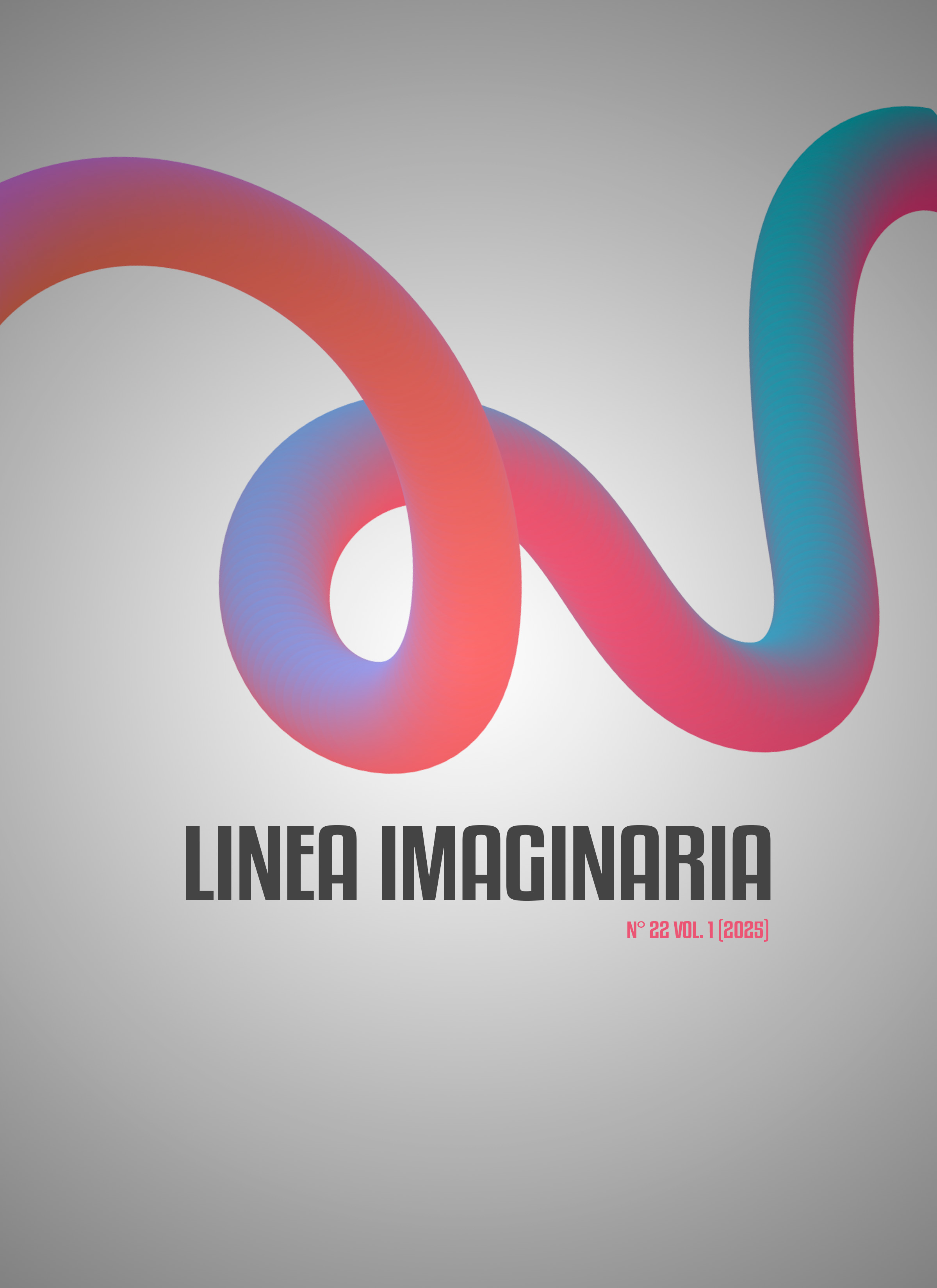METHODOLOGIES FOR TEACHING STATEMENT COMPREHENSION IN RANDOM THINKING
DOI:
https://doi.org/10.56219/lneaimaginaria.v1i22.4121Keywords:
Random thinking, teaching strategies, secondary education, teacher trainingAbstract
Random thinking is a fundamental skill in mathematics education, allowing students to interpret information, analyze data, and make decisions based on probability. In this sense, the present systematic review article aims to identify teaching strategies for teaching and strengthening random thinking in elementary and secondary education students. To this end, various pedagogical and methodological approaches that promote its development are analyzed, answering the research question: What teaching strategies are most appropriate for teaching and developing random thinking in primary and secondary education students? The methodology used follows a qualitative approach and a systematic literature review design, in which recent studies on active methodologies, situated learning and problem-based teaching were collected and examined. The results show that strategies such as Problem-Based Learning (PBL), Investigative Classrooms and the integration of Information and Communication Technologies (ICT) promote the development of probabilistic thinking. In addition, the relevance of teacher training in the application of these methodologies to improve the teaching of probability and statistics is underlined. The use of contextualized teaching strategies and active methodologies allows to enhance the understanding of probabilistic concepts and their application in real situations.
Downloads
References
Alcarraz, B. (2024). EL Aprendizaje situado para desarrollar el pensamiento crítico en las estudiantes de Educación Superior Pedagógica. Revista Educación, 22(23), 25-37. DOI: https://doi.org/10.51440/unsch.revistaeducacion.2024.23.480
Anasagasti, J., Izagirre, A., & Berciano, A. (2024). Actitud hacia la probabilidad y su enseñanza del profesorado de educación secundaria. Educación matemática, 36(3), 143-172. DOI: https://doi.org/10.24844/EM3603.06
Arias, M. I. A. (2022). La enseñanza del pensamiento aleatorio en educación secundaria y su relación con el aprendizaje significativo. Revista Scientific, 7(24), 286-303. ´ DOI: https://doi.org/10.29394/Scientific.issn.2542-2987.2022.7.24.15.286-303
Bargagliotti, A., Franklin, C., Arnold, P., Gould, R., Johnson, S., Pérez, L. y Sàngler, D. (2020). Pre-K-12 guidelines for assessment and instruction in statistics education II (Gaise II). American Statistical Association & National Council of Teachers of Mathematics.
Batanero, C., & Díaz, C. (2021). Enseñanza y aprendizaje del pensamiento aleatorio: Fundamentos y estrategias didácticas. Editorial XYZ.
Batanero, C., Gea, M. M. G. S., & Álvarez-Arroyo, R. (2023). La educación del razonamiento probabilístico. Educação Matemática Pesquisa Revista do Programa de Estudos Pós-Graduados em Educação Matemática, 25(2), 127-144. DOI: https://doi.org/10.23925/1983-3156.2023v25i2p127-144
Brown, JS, Collins, A., y Duguid, P. (1989). Cognición situada y la cultura del aprendizaje. Educación
Camargo, M. R. M., & Camargo, P. C. M. (2019). Propuesta lúdica: un enfoque hacia el fortalecimiento del pensamiento aleatorio. Educación y Ciencia, (22), 505-517. DOI: https://doi.org/10.19053/0120-7105.eyc.2019.22.e10068
Chávez, B. D. C. T. (2019). La Resolución De Problemas Matemáticos Y Su Incidencia En El Aprendizaje Del Pensamiento Aleatorio De Los Estudiantes De Quinto Grado De Educación Básica De La Institución Educativa Liceo Joaquín F. Vélez. Revista Docentes 2.0, 7(2), 45-52. DOI: https://doi.org/10.37843/rted.v7i2.10
Cruz, M. A., Hernández, Ó. E. C., & Bernal, J. (2011). Actividades didácticas en enseñanza secundaria para el desarrollo de pensamiento aleatorio. Scientia et technica, 3(49), 158-162.
Dueñas, Y. L. M., & Hernández, D. Y. H. (2024). Pensamiento Aleatorio como Estrategia Didáctica para el Desarrollo de Competencias en Contextos de Educación Básica Primaria. Ciencia Latina: Revista Multidisciplinar, 8(3), 6315-6330. DOI: https://doi.org/10.37811/cl_rcm.v8i3.11826
Godino, JD y Wilhelmi, MR (2022). Modelización y representaciones múltiples en la enseñanza de la probabilidad y la estadística. Revista de Educación Matemática, 28(2), 45-62.
Gómez, L., & Ramírez, P. (2023). El desarrollo del pensamiento estocástico en la educación básica: Retos y oportunidades. Revista de Didáctica de la Matemática, 35(1), 12-30.
Guizado, G. A. S., Rivas, G. M. H., & Rioja, R. D. L. C. (2022). El Pensamiento Matemático: los 5 pilares de la formación docente en ciencias. Horizontes. Revista de Investigación en Ciencias de la Educación, 6(23), 713-724. DOI: https://doi.org/10.33996/revistahorizontes.v6i23.371
ICFES. (2024). Resultados de la prueba SABRE PRO y su relación con el pensamiento aleatorio en educación media. Instituto Colombiano para la Evaluación de la Educación.
Lave, J., y Wenger, E. (1991). Aprendizaje situado: participación periférica legítima. Universidad de Cambridge.
Ministerio de Educación Nacional de Colombia. (1998). Estándares Básicos de Competencias en Matemáticas. HOMBRES.
Ministerio de Educación Nacional de Colombia. (1998). Lineamientos Curriculares en Matemáticas. HOMBRES.
Peña, L., Cristancho, D., & Espíndola, J. (2020). Desarrollo del pensamiento aleatorio a través de situaciones problema del contexto. Revista espacios, 41(50), 389-408. DOI: https://doi.org/10.48082/espacios-a20v41n50p27
Solano, E. C., Prieto, I. Z. M., & Serna, R. J. (2021). Pensamiento aleatorio para tercera primaria rural durante la pandemia por Covid-19. Boletín Redipe, 10(8), 381-390. DOI: https://doi.org/10.36260/rbr.v10i8.1411
Sosa, W. A. S., & Sánchez, D. F. G. (2019). Desarrollo del Pensamiento Aleatorio y Variacional a Través de Tareas Exploratorio-investigativas. Voces y Realidades Educativas, 4(1), 115-128.
Triana, R., Pérez, M. y González, S. (2015). Dificultades en la interpretación de enunciados matemáticos y su impacto en el aprendizaje de la probabilidad y la estadística. Estudios en Educación Matemática, 20(1), 33-50.
Triana, Y. P. P., Segura, O. P., & Hernández, A. P. (2015). Un estudio sobre el desarrollo del pensamiento aleatorio usando recursos educativos abiertos. Apertura, 7(1), 1-13.
Downloads
Published
How to Cite
Issue
Section
License

This work is licensed under a Creative Commons Attribution-NonCommercial-ShareAlike 4.0 International License.
La revista Línea Imaginaria conserva los derechos patrimoniales (copyright) de las obras publicadas, que favorece y permite la reutilización de los mismos bajo la licencia Creative Commons Atribución-NoComercial-CompartirIgual 4.0 , por lo cual se pueden copiar, usar, difundir, transmitir y exponer públicamente, siempre que se cite la autoría y fuente original de su publicación (revista, editorial, URL y DOI de la obra), no se usen para fines comerciales u onerosos y se mencione la existencia y especificaciones de esta licencia de uso. Si remezcla, transforma o crea a partir del material, debe distribuir su contribución bajo la misma licencia del original.














